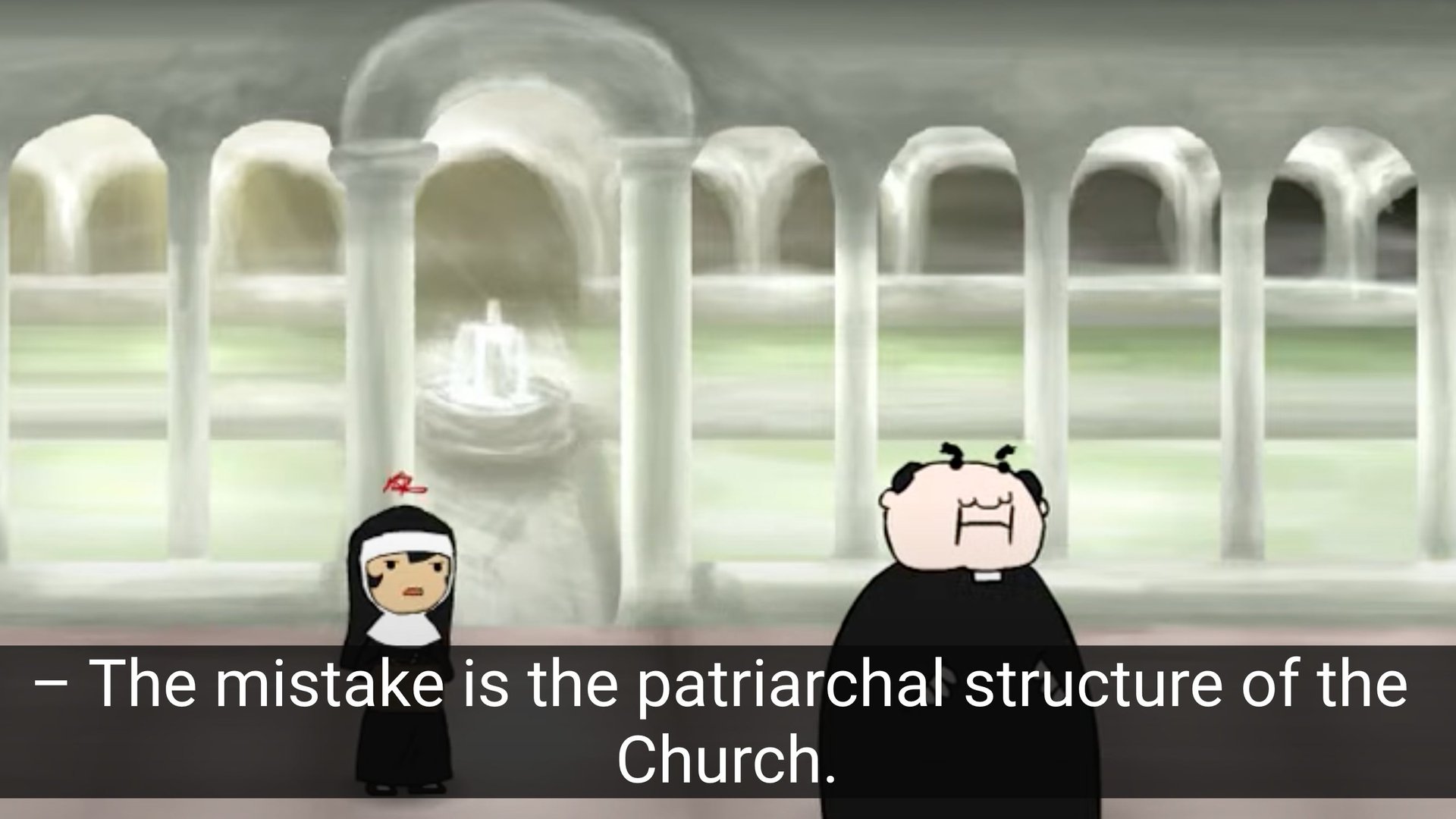A Catholic cartoon helps Mexicans reconcile faith with abortion rights
For a decade, Catolicadas episodes have introduced feminism and humor to matters of faith

Sister Juana Ilega and Father Beto work together in a parish. Both of them have Catholic faith strong enough to become the center of their existence, yet they don’t always see eye to eye on matters of morality or religion.
Father Beto is in line with mainstream Catholic doctrine. But Sister Juana is a feminist. She thinks the church should create more space for women, and interfere less with issues of sexuality and reproductive rights. To counter his positions, she uses the most powerful tool she has: scripture.
Over the past decade, Sister Juana has challenged the church’s status quo on issues from contraception, to sexual pleasure, to abortion. She has done it over 10 seasons of Catolicadas, a cartoon produced by the Mexican arm of Católicas por el Derecho a Decidir (CDD), a Catholic pro-choice organization.
Since it was launched in March 2012, Catolicadas has released 129 episodes, and amassed 11.2 million views on YouTube and Facebook. Until 2019, when the latest season was released before a pandemic hiatus, the show was also broadcast on television by Televisa, one of the Mexico’s main TV channels through which it reached millions, helping religious people reconcile Catholic beliefs with the needs of their lives and consciences.
Catholic, but make it feminist
The inspiration for Catolicadas came from Salwa Adventures, a Lebanese cartoon that aimed to teach Muslim women their rights against sexual harassment. The idea was to create a similar product that could educate Mexican Catholic women on their rights, starting with reproductive and sexual issues. At the time, abortion was only legal in Mexico City state, and the Marea Verde, the Latin American movement that has helped pass pro-choice legislation throughout the region in recent years, hadn’t yet begun making its way north from Argentina.
“[The show] was created as a tool to share the stories of common people that face ethical and religious dilemmas in their everyday life regarding issues related to human rights and so social justice,” says CDD’s co-director Paula Sánchez-Mejorada Ibarra. “The idea is to use storytelling and humor to share those stories. and [apply] progressive teachings from religion and human rights.”
TV distribution put the show in front of a wide audience, and CDD’s co-director Aidé García Hernández, who worked on the show from the beginning, said that the popularity of Catolicadas was a big surprise. Watchers, she remembers, would eagerly await for the next episode, and even the religious establishment, after initially trying to get the show off the air, accepted it. While CDD received criticism from more conservative Catholics, it was always able to demonstrate that its positions were supported either by scripture or by more recent church writings, such as the documents of Vatican II.
Sister Juana embodies an approach to religion that is close to people’s lives and challenges, unlike the dogma of the Catholic establishment. But much like the official positions, her beliefs and theories come from interpretation of the Bible—only, ones that focus more on progressive values and human rights. “We’re presenting different interpretations of the traditional teachings and texts, using feminist theology,” says Ibarra.
Freedom as faith
When it comes to abortion, Catolicadas was one of the most effective tools for CDD, and the broader movement to protect choice as an act of freedom independent of matters of faith. This was true in particular as the main audience for the series was women and youth (though with time, says CDD, about half the audience became male).
Close to 20 episodes of the cartoon deal directly with abortion. In one, anti-abortion parents decide to support their daughter who has chosen to have an abortion, even though they disagree with the decision, because they respect her agency. In another, a poor woman risks her life after an unsafe abortion, and Sister Juana fights against religious condemnations of her actions. One of the episodes educates a doctor on the legality of practicing an abortion on a minor who has been raped, while another notes how even the Virgin Mary was asked whether she wished to become a mother—hence all women should have choice.
The show has had an especially significant impact in conservative states, where religion is more likely to dictate the social choices people make. Susana de la Rosa, a local representative for the state of Jalisco, credits Catolicadas, and the broader work of CDD, for the success the state had in passing gay marriage laws, as well as in changing attitudes toward abortion. Some local Catholic movements go as far as excommunicating women who admit to having had an abortion—and in the face of such patriarchal theology, she says, a friendly cartoon promoting a feminist view of the word of God is an incredibly effective tool.
A 2019 evaluation of the series published by the Observatory on the Universality of Rights, a collaborative global project that monitors programs that promote progressive values, shows remarkable impact. Nearly 60% of the audience stopped taking part in church activities against abortion after watching Catolicadas, and half the women interviewed said they felt less guilty about a previous decision to have an abortion. Significant change was recorded also in relations to LGBTQ+ rights, and in rejecting discrimination by the church.
